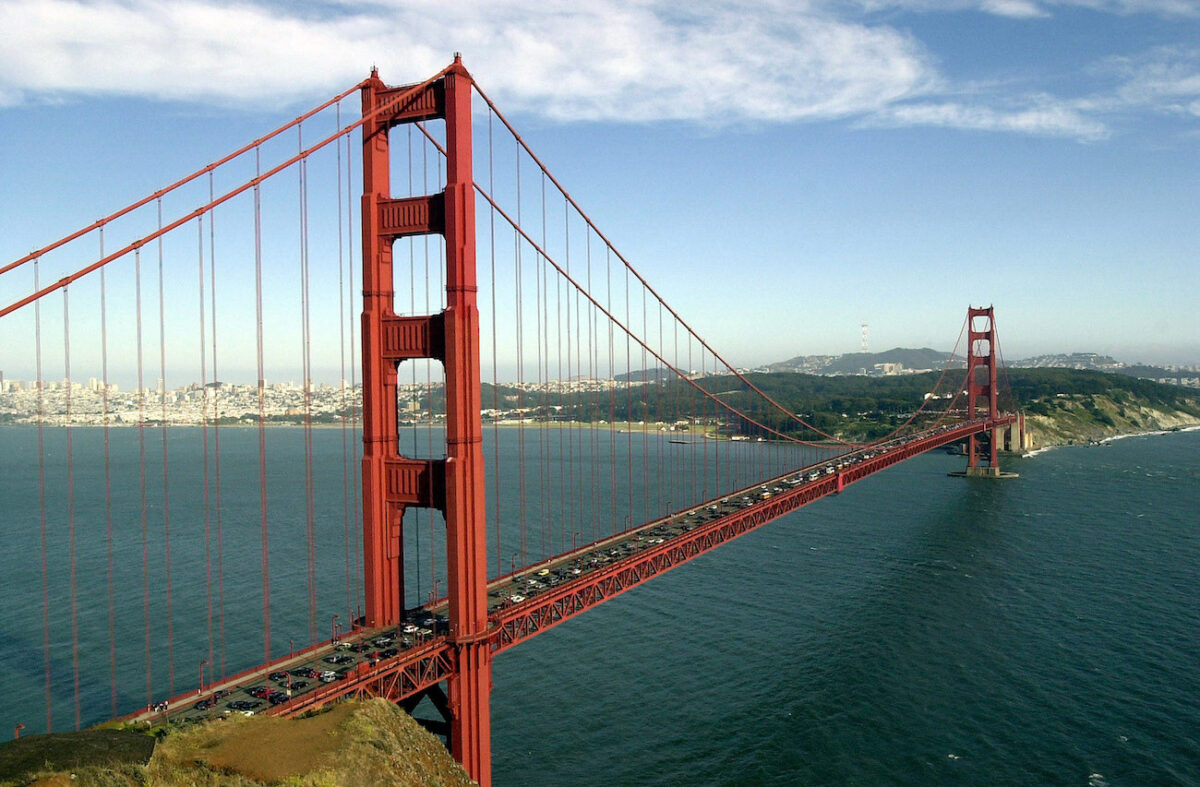


News Analysis
SAN FRANCISCO—San Franciscans started to feel the impact of a massive exodus starting with the COVID-19 pandemic and continuing as crime skyrocketed more recently.
Residents have found that there are not as many people walking the streets downtown now. Usually there are more tourists than office workers, even during lunch break.
No more crowds of people line up waiting for public transit at the end of the day’s work.
Many workers in the tech sector moved to larger houses further from office during the pandemic. They successfully resisted going back to work for full office hours after the pandemic restrictions were lifted.
The office vacancy rate in San Francisco rapidly climbed to 31 percent, the worst on record. In the heart of the city, 18.4 million square feet of real estate is available, enough to house 92,000 employees, according to the SF Chronicle.
U.S. Census Bureau data shows that 55,000 people moved out of San Francisco in 2020, the first year of the COVID-19 pandemic.
That’s more than 6 percent of the population of the city.
As people faced the new highly contagious and potentially deadly virus, they did their best to keep their families safe by moving away from crowded metro areas to suburban ones.
The net change in USPS address requests by people leaving San Francisco shows the dynamics of this exodus. The tide of leaving San Francisco began in March 2020, when address requests started to increase by more than 2,000, and it slowed down significantly by May 2021. The peak month was August 2020 with 6,961 requests.
University of California Consumer Credit Panel data estimates that over 72,000 people moved out of San Francisco between January 2020 and September 2021.
A UC California Policy Lab report states that approximately two thirds of people who moved out of San Francisco remained within the 11-county Bay Area economic region.
Still, a portion of those who left San Francisco contributed to the number of roughly 93,000 people who left Silicon Valley during the first two years of the pandemic. The exodus has erased population gains from the past decade, according to the Silicon Valley Index report issued in February 2023.
The exodus hasn’t ended yet.
The massive exodus from San Francisco in the first 14 months of the pandemic was unprecedented. The only similar exodus during the same period was from Manhattan, New York, with a similar percentage of people leaving.
Seattle, Denver, and Dallas also experienced trends of people moving out.
The exodus from the Bay Area is continuing at a slower pace now.
According to data from the California Department of Finance, the number of people living in the Bay Area on Jan. 1, 2023 was about 34,000 fewer than on Jan. 1, 2022.
High-tech entrepreneur and investor George Haber told The Epoch Times: “The reasons causing tech workers to leave en masse in the San Francisco Bay Area are simple—the cost benefit analysis of what you get for what you pay, plus the declining public education of the Bay Area. [It costs] a huge amount of money to have a decent life there these days.”
He said things are also getting much worse in terms of security and crime.
“In bigger cities—San Francisco, San Jose, even Palo Alto—the dirt and misery and drug addiction are just horrific,” Haber said.
He said people moving in and out of California, for either a good life or employment, is “not just normal, but a testament to the state’s rich and diverse allure.”
He described California as “a vibrant, dynamic landscape where the ebb and flow of people is as natural as the changing tides.”
“California, the Golden State, has long been emblematic of this very essence,” he said.
The pandemic has claimed the lives of more than 1.12 million people in the United States, according to data collected by Johns Hopkins University.
It has impacted people in many ways. More than 3 million Americans decided to retire early during the first 18 months of the pandemic, the Federal Reserve Bank of St. Louis reported.
Commonly cited issues with California include crime, the high cost of living, and homelessness. These are factors that people consider when deciding whether or not to leave, but these issues were already there before the pandemic.
For any particular person, the decision to leave the Bay Area can be personal and emotional, yet related to the pandemic experience. In Haber’s case, he sold his $8 million house in the Bay Area and moved to Virginia in 2022 just because he could not enjoy the beautiful beaches around the Bay Area during the pandemic.
According to former San Francisco Supervisor Tony Hall, crime and lawlessness is the number one reason people and companies are leaving San Francisco.
“People just don’t feel safe anymore,” Hall told The Epoch Times. “Cops are not allowed to do their job here because of the warped sense of justice that the Board of Supervisors operates with.”
Also, during the pandemic’s work-from-home phase, many people discovered that the locale that they spent their working hours in was not as important as they had thought, and they wanted to be happy and in control of their setting and subject to less hassle, according to Hall.
“So many of them are outsiders who just have not been able to assimilate into the long-valued social networks that have always characterized native San Franciscans,” said Hall.
The Epoch Times documentary “Leaving California” takes a deep dive into the reasons for the exodus from the state.
Following the exodus of people, the exodus of corporate headquarters from California accelerated in 2021, a report by the Hoover Institution of Stanford University stated in 2022.
The report mentioned that 153 company headquarters left California in 2021, compared to 75 in 2020, 78 in 2019, and 46 in 2018.
San Francisco itself lost 52 company headquarters in 2021, which amounts to nearly 60 corporate headquarters per million population, far above the rate in other counties.
The report concluded that business headquarters relocations are “reflecting a California business environment that ranks near the bottom of all U.S. states in many dimensions, including taxes, regulations, litigation costs, labor costs, energy and utility costs, and employee cost of living.”
The exodus of corporate headquarters did not reverse its course in 2022 and 2023, according to a website called Build Remote.
The site listed all companies with over 200 employees whose headquarters left California from 2020 to May 1, 2023. Of the listed companies, 36 out of 61, or almost 60 percent, are from the San Francisco Bay Area.
Among the 36 companies, 10 left in 2020, 14 in 2021, 8 in 2022, and 4 in 2023 as of May 1.
Of the 36 corporate headquarters, 14 landed in Texas.
Farhad Arvin is the founder and CEO of a company called Choovio IoT Solutions in Irvine, California. He told The Epoch Times that he knows at least 10 friends who have left California and gone to other states, mainly due to the cost of living.
Cassia Networks is a technology company based in San Jose that focuses on long-range Bluetooth products and solutions and employs about a dozen people in San Jose.
Sanja Pesich, senior manager in marketing communications with Cassia Networks, told The Epoch Times that the company is here to stay.
“I think the decision to stay in the Bay Area has to do with the spirit of the valley,” said Pesich.
She thinks some companies probably grew too fast and may not have been as lean or as strategic as Cassia Networks, which made it more difficult to survive here.
“There are a lot of advantages, a lot of good universities here that want to use our products, that we can exchange a lot of information with,” said Pesich.
The pandemic also took a heavy toll on retailers in San Francisco. This, along with public safety and open drug issues, triggered a retail stores exodus from San Francisco.
Since 2020, over two dozen retailers have closed their stores in the city, including Amazon, CVS, Office Depot, and Walgreens as well as global brands such as Uniqlo, Gap, and H&M.
Cookware retailer Williams-Sonoma announced on May 12 the closure of its Union Square store scheduled in 2024. This is the last of its stores in San Francisco.
Nordstrom announced it will not renew its lease in the Westfield mall on Market Street.
San Francisco’s sales tax revenue in 2022 was around $141 million, which was 22 percent less than the $181 million (adjusted for inflation) in 2019.
Downtown revenues plunged even more. In the South of Market district, revenue fell to $14 million in 2022, or by 34 percent compared to $21 million in 2019. San Francisco’s Financial District and South Beach dropped about 30 percent from $41 million to $28 million.
The Whole Foods store in the basement of luxury apartment Trinity at 8th Street and Market Street was forced into temporary closure after 13 months of being open, due to retail theft and violent crimes. The New York Times reported that 568 emergency calls from this store were recorded, including an incident of a security guard being assaulted.
Ride-share service Lyft has laid off 383 employees at its headquarters, according to a company notice filed with the state on May 10, and it has closed its San Francisco driver center.
Tony Hall said, “The only way that this mass exodus will stop is when city officials [are] working together to make the city a happy, fun, safe, and exciting place to be as opposed [to] a haven for only the holier-than-thous and politically correct and the thugs and scam artists that have multiplied here. The city has lost its soul, which has been replaced by unhappy sharks all trying to capitalize on the city’s former grandeur, and quite frankly, the people in San Francisco today are quite boring and do not seem to enjoy or value the spirit of life in itself.”
Views expressed in this article are the opinions of the author and do not necessarily reflect the views of The Epoch Times.

